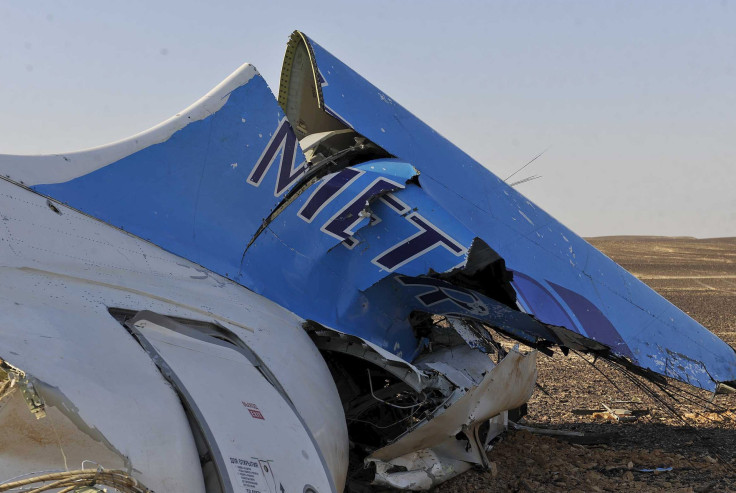Russian Metrojet Plane Crash: Egypt’s Preliminary Investigation Finds No Evidence Of ‘Terrorist Act’; Kremlin Dismisses Finding

UPDATE: 4:04 p.m. EST -- Kremlin spokesman Dmitry Peskov said Monday that Russia’s special services concluded that the downing of the Metrojet Airbus A321 over Egypt’s Sinai-Peninsula region in October was a terrorist act. Peskov’s comments came after Egypt’s preliminary investigation found that the plane was not brought down by a bomb.
“I can only remind you that the report of our experts from the corresponding special services concluded that this was a terrorist act,” Peskov said, according to Sputnik News.
Original story:
Egyptian authorities found no indication of any “illegal or terrorist act” in a probe into a Russian passenger plane crash over the country’s Sinai-Peninsula region on Oct. 31, Egypt’s chief investigator said Monday. Russia and Western governments have maintained that the downing of the Metrojet Flight 9268 was a terrorist act.
Chief investigator Ayman el-Muqadam said in a statement that the investigation committee did not "receive any evidence" that showed there was foul play in the plane crash, the Associated Press reported.
“The technical investigative committee has so far not found anything indicating any illegal intervention or terrorist action,” Egypt’s civil aviation ministry said, according to Reuters.
The investigation result is contradictory to Russia, the U.K. and the United States’ claims that the Metrojet plane was brought down by a bomb, killing all 224 on board. In November, an audio message posted on social media, believed to be from Wilayat Sinai, an Islamic State group affiliate, confirmed ISIS' claim of downing the jet.
Russian newspaper Kommersant, citing an unnamed source, reported in November that a bomb was placed in the aircraft’s main cabin.
"According to a preliminary version, the bomb could have been laid under the passenger seat by the window. Its operation has led to the destruction of the frame and depressurization of the cabin, which had an explosive character," the newspaper said.
“One can unequivocally say it was a terrorist act. After tests of the personal items and elements of the aircraft, examination has revealed traces of explosives on the [Airbus] A321,” Alexander Bortnikov, the head of Federal Security Service of the Russian Federation, said in November.
Also in November, Britain said that it had information that showed the plane was brought down by an “explosive device.” Britain and Ireland had suspended all flights to the Red Sea resort of Sharm el-Sheikh, from where the plane took off for Russia's St. Petersburg.
A U.S. official also said in November that the U.S. intelligence suggested that the cause of the crash was most likely a bomb planted by the Islamic State group or an affiliate of the militant group.
© Copyright IBTimes 2024. All rights reserved.






















